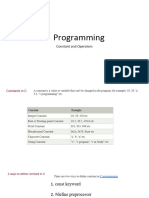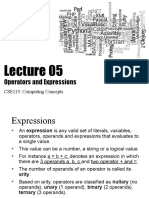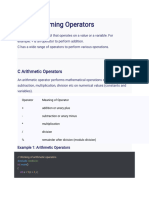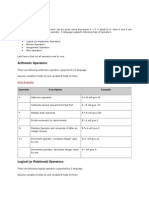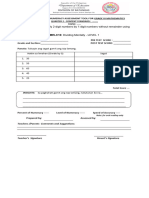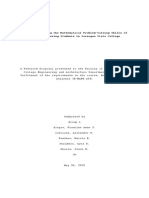0% found this document useful (0 votes)
8 views24 pagesLecture Slide 05 - Operator Expression
The lecture covers operators and expressions in C programming, detailing various types of operators including arithmetic, relational, logical, bitwise, assignment, and special operators. It explains operands, expressions, and statements, providing examples of how these operators function within code. Additionally, it discusses operator precedence, associativity, and type casting to enforce type conversion in variables.
Uploaded by
arifhasanCopyright
© © All Rights Reserved
We take content rights seriously. If you suspect this is your content, claim it here.
Available Formats
Download as PPT, PDF, TXT or read online on Scribd
0% found this document useful (0 votes)
8 views24 pagesLecture Slide 05 - Operator Expression
The lecture covers operators and expressions in C programming, detailing various types of operators including arithmetic, relational, logical, bitwise, assignment, and special operators. It explains operands, expressions, and statements, providing examples of how these operators function within code. Additionally, it discusses operator precedence, associativity, and type casting to enforce type conversion in variables.
Uploaded by
arifhasanCopyright
© © All Rights Reserved
We take content rights seriously. If you suspect this is your content, claim it here.
Available Formats
Download as PPT, PDF, TXT or read online on Scribd
/ 24











































